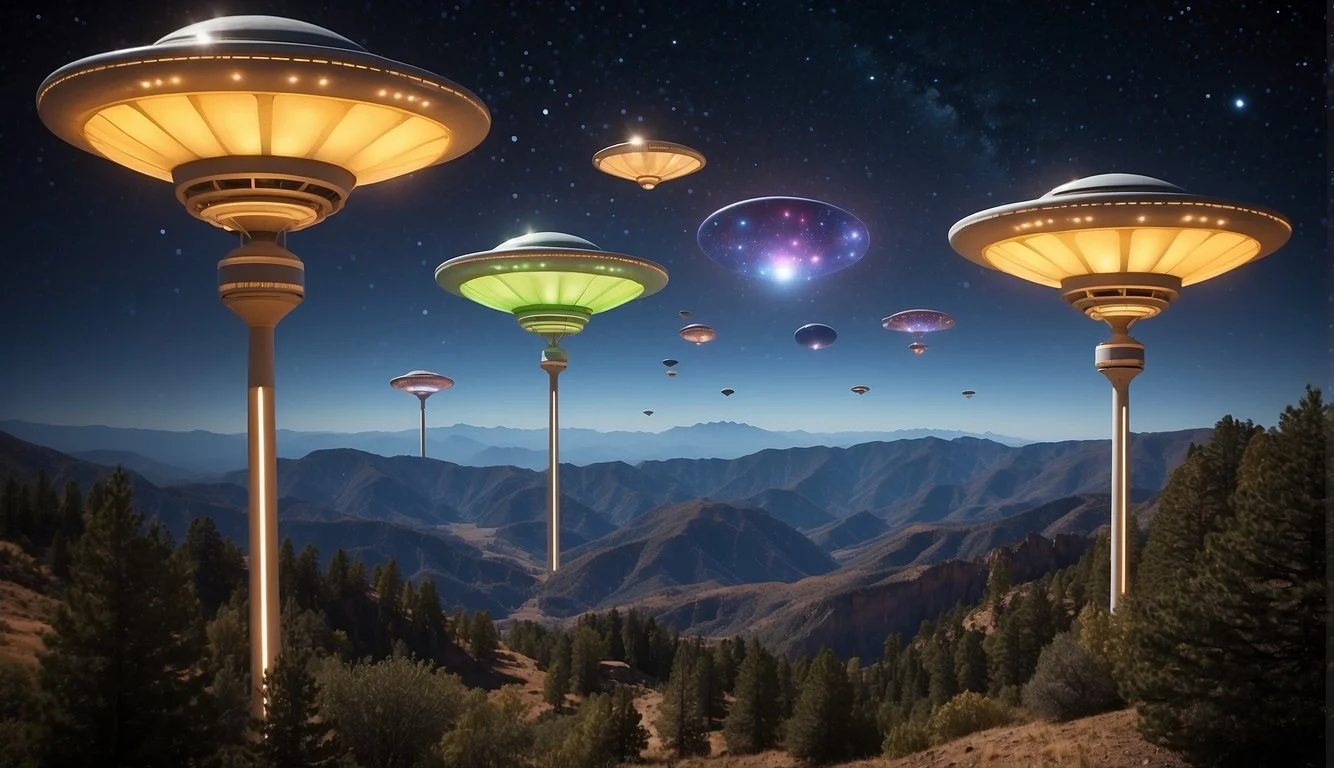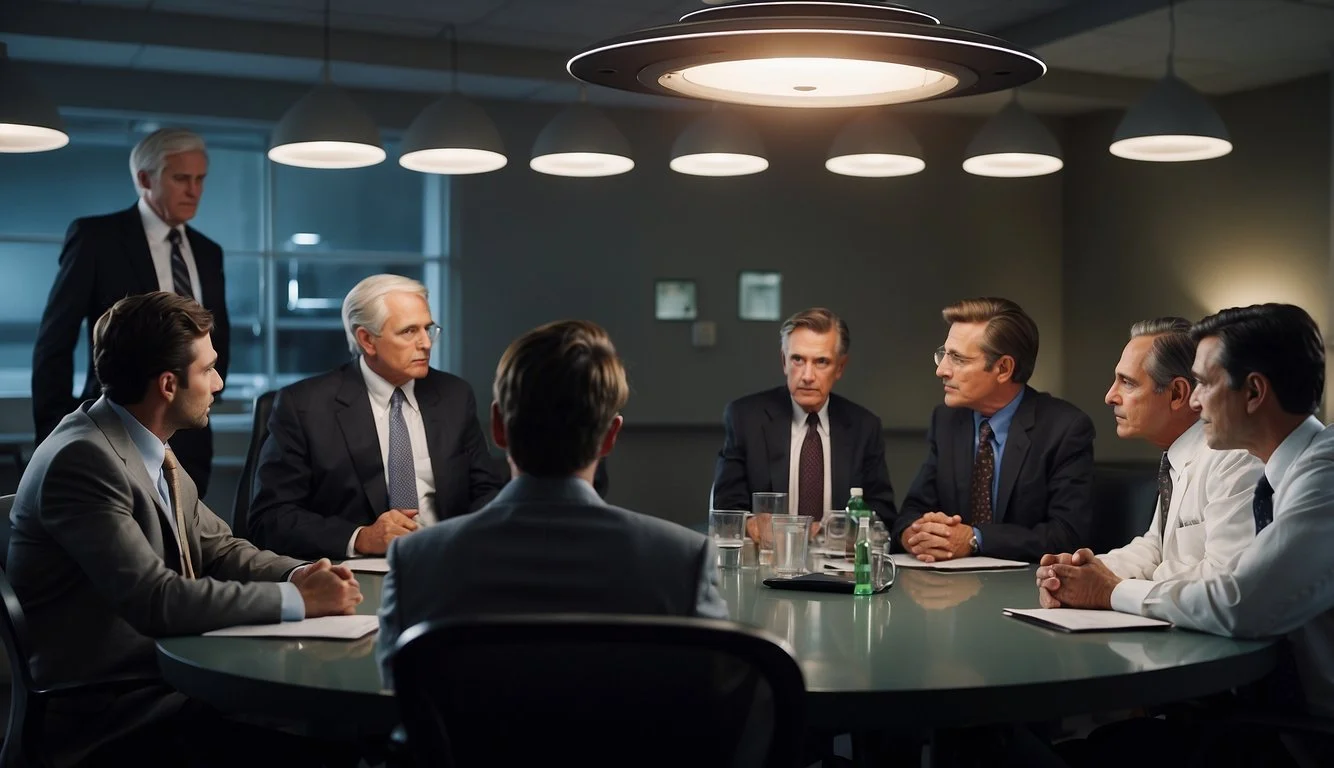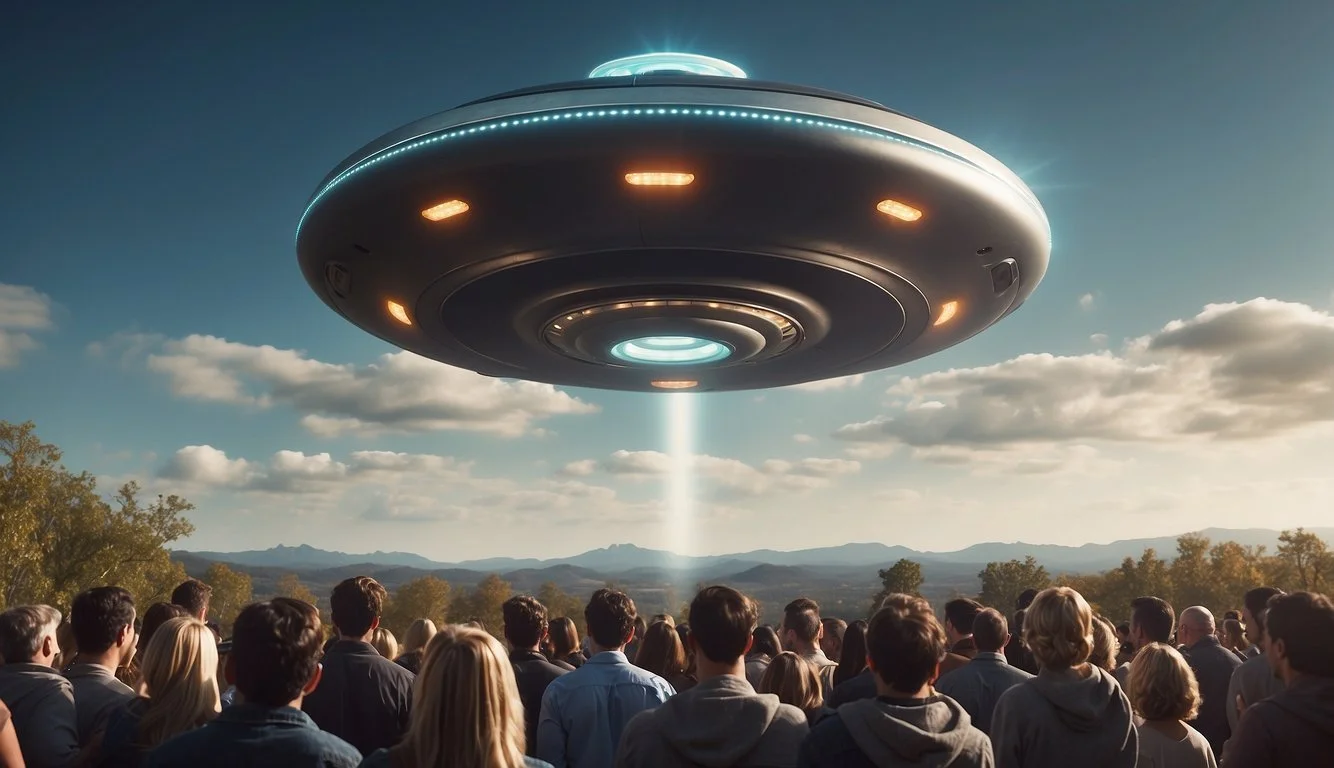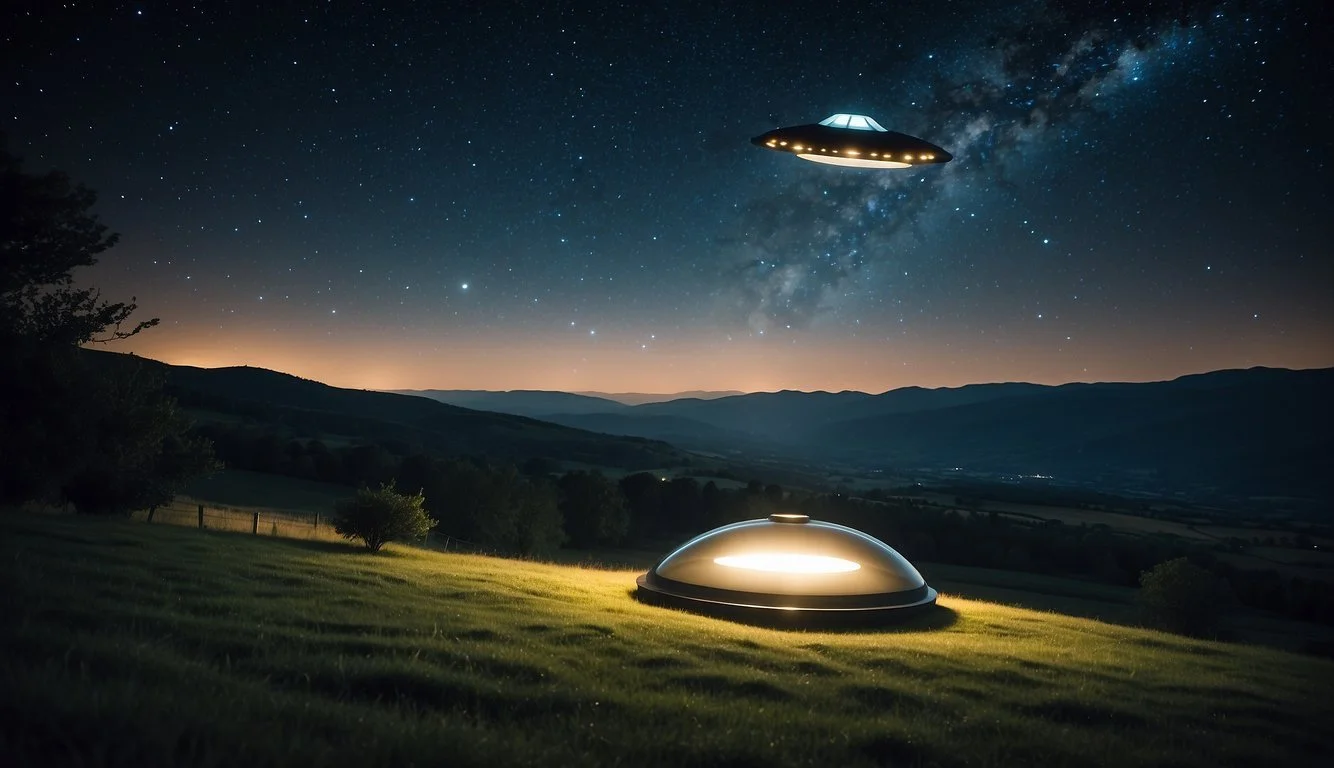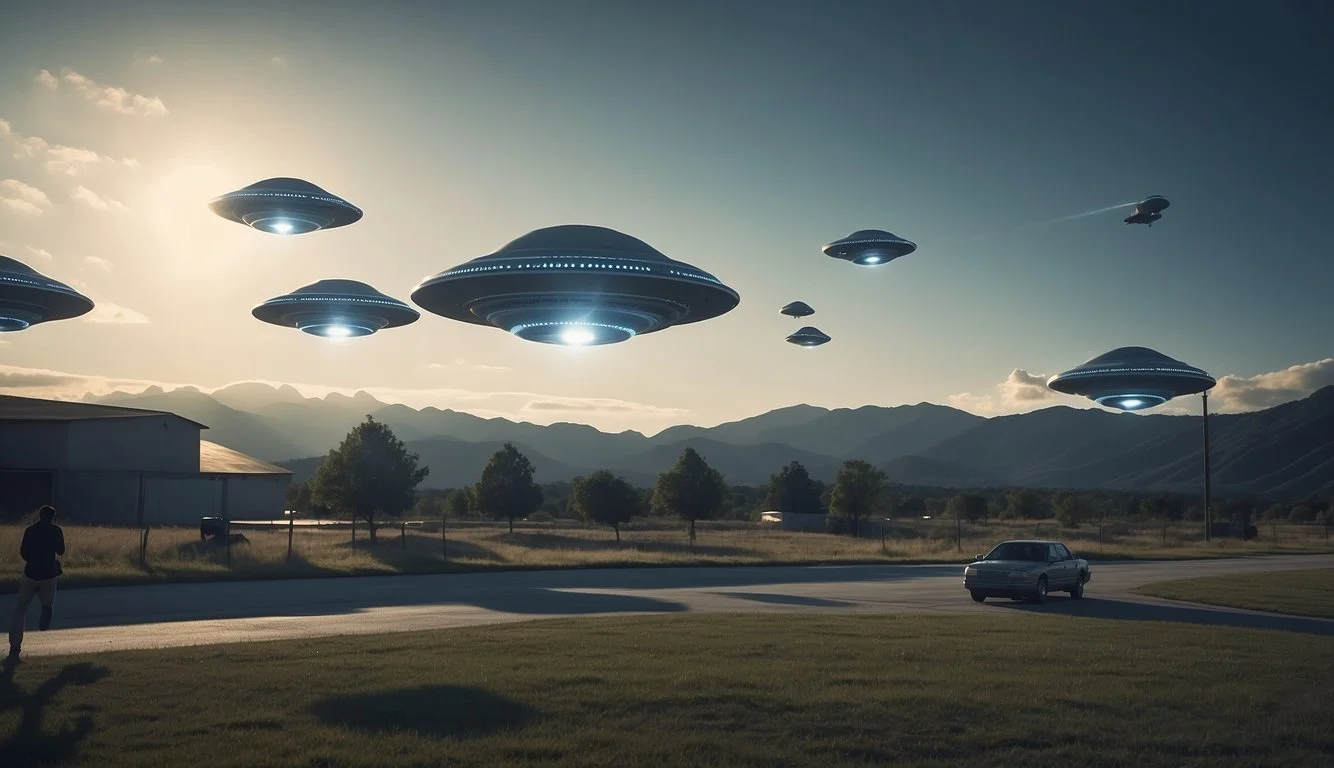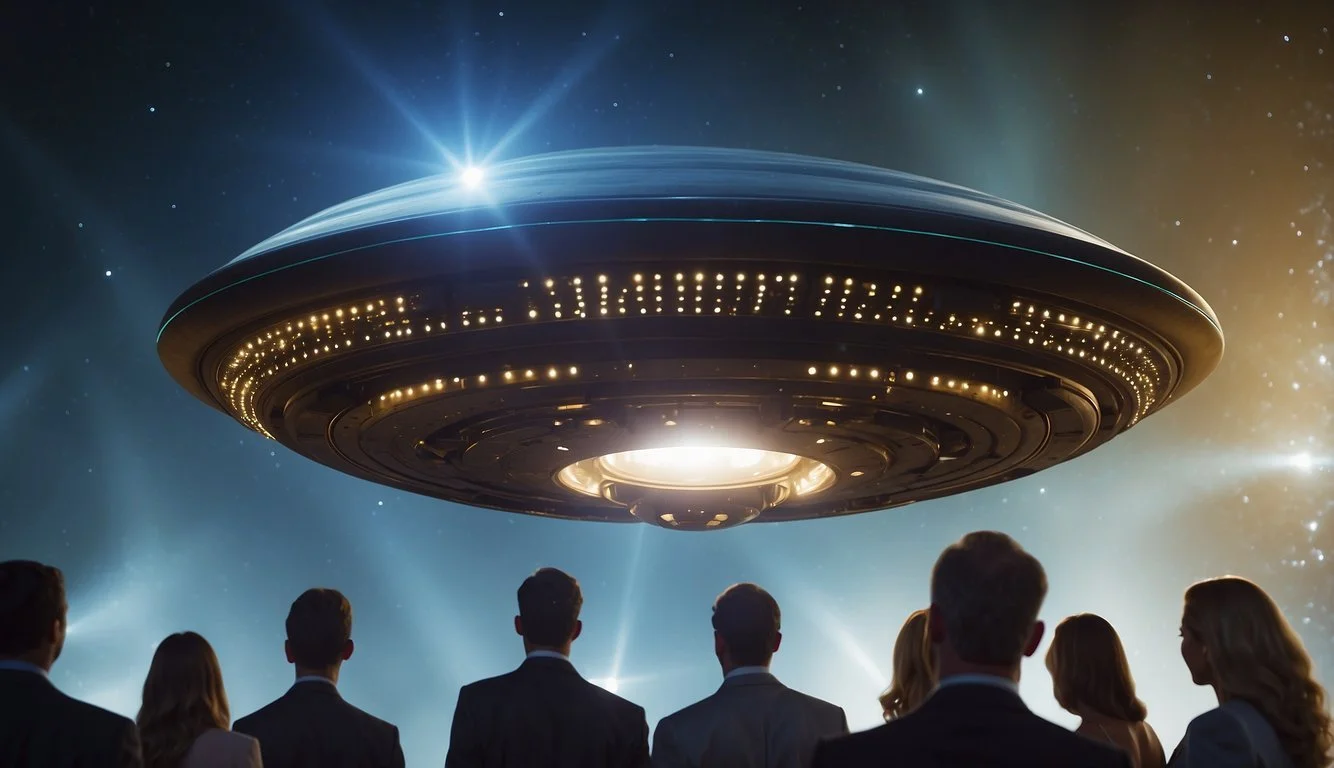The Connection Between UFOs and American Reality TV Celebrities: Unveiling the Intriguing Links
The intersection of UFO phenomena and American reality TV celebrities has become an intriguing element of modern pop culture. The fascination with unidentified flying objects (UFOs) isn't new, but its prevalence in the reality TV sphere marks a contemporary twist on this enduring mystery. Notably, some celebrities have taken their interest public, with figures such as Demi Lovato sharing personal encounters with purported extraterrestrial phenomena. These endorsements bring a significant spotlight to the topic, intertwining the allure of celebrity with the enigma of UFOs and potentially influencing public perception.
What gives these accounts additional traction is the historical context of UFO sightings and the data collected over the years. While the U.S. government's release of a report in June 2021 examining 144 incidents reported by military pilots has contributed to a more serious consideration of UFOs, the phenomenon remains shrouded in ambiguity. The American public’s curiosity has been piqued by the conjunction of classified information and high-profile testimonies, resulting in a unique cultural narrative that marries mystery with the influence of televised fame.
Historical Context of UFO Sightings
Unidentified Flying Objects (UFOs) have been a subject of immense curiosity and rigorous investigation, with early accounts triggering government interest and eventually societal stigmatization of research in the field.
Early Accounts of Unidentified Flying Objects
Early accounts of UFOs, often described as "flying saucers," captivated the American public's imagination following the famous 1947 incident near Roswell, New Mexico. This event marked the beginning of widespread reporting of unidentified aerial phenomena (UAP). Subsequent sightings across the country have been a mixture of unexplained phenomena and misidentified natural or man-made objects.
Government Involvement and Public Interest
The U.S. government's engagement with the UFO phenomenon has fluctuated over the years, marked by periods of significant interest and cautious skepticism. The establishment of Project Blue Book by the U.S. Air Force in 1952 illustrated a formal acknowledgement of national security interests in these sightings. Government reports and investigations, such as the 2021 preliminary report delivered to Congress, have kept public interest piqued, however, official positions often steered clear of validating extraterrestrial hypotheses.
The Stigmatization of UFO Research
Despite an increasing number of sightings, the stigma surrounding UFO research has often deterred scientists and the scientific community from openly engaging with the topic. This posture has been attributed to the lack of concrete evidence, widespread hoaxes, and the fear of professional ridicule. Nevertheless, the subject continues to be of modest interest within various branches of science involved in the continuous quest for understanding phenomena that challenge conventional knowledge.
UFOs and American Pop Culture
UFO phenomena have woven their way into the fabric of American entertainment, with reality TV shows and celebrity endorsements significantly shaping public perception.
UFOs in Reality TV and Celebrity Culture
In California, a hub for both celebrity culture and numerous reported UFO sightings, reality TV shows have frequently highlighted unidentified flying objects, often blurring the lines between genuine intrigue and sensationalism. Shows like "Ancient Aliens" and celebrity-centric programs discussing extraterrestrial encounters introduce viewers to a blend of historical data, alien theories, and pop culture. Prominent celebrities openly discussing their personal UFO sightings or experiences can catapult the topic into mainstream conversations, sometimes reinforcing conspiracy theories without substantial evidence.
Influence of Celebrities on UFO Perceptions
Celebrities have a powerful impact on the dissemination of ideas and beliefs about UFOs. When a well-known figure shares a personal UFO story, it can lend the topic an air of credibility or, conversely, prompt skepticism. California's high-profile events, profound in both pop culture and the realm of conspiracy theories, often attract attention to alien subjects previously confined to fringe groups. As celebrities voice their opinions or share experiences, they shape the narrative and influence the public's attitudes toward UFOs, occasionally sparking renewed interest or skepticism around these mysterious phenomena.
Scientific and Congressional Investigations into UFOs
The growing interest in unidentified aerial phenomena (UAPs) has led to formal scientific scrutiny and Congress taking a more active role in seeking transparency and understanding. This increased focus comes amid concerns for national security and scientific curiosity.
Recent Congressional Hearings on UAPs
In June 2023, a congressional subcommittee held a hearing to address UAPs, marking a significant step in government transparency. Lawmakers, including Senator Marco Rubio, have been pivotal in bringing UAP discussions to the forefront of congressional attention. The hearing examined evidence presented by military personnel, leveraging Navy videos of unexplained encounters, and addressed implications for national security.
Role of Scientific Studies in UAP Understanding
Scientists have been conducting scientific studies to decipher the physics behind UAPs. Collaborations with NASA and other research institutions aim to apply rigorous scientific methods to analyze data, pushing the boundaries of current aerospace knowledge. Understanding these phenomena plays a crucial role in discerning whether UAPs have mundane explanations or something beyond current comprehension.
Contribution of the Defense Department
The Defense Department, under the aegis of the recently established All-Domain Anomaly Resolution Office (AARO), actively analyzes UAP incidents. This department's involvement underscores the intersection of UAP occurrences with issues of national security. The Pentagon has been instrumental in coordinating between the government and defense apparatus, ensuring structured investigation into these mysterious sightings.
Global Perspectives on UFOs and Extraterrestrial Life
The global curiosity in UFOs and the possibility of extraterrestrial life is both a cultural and political topic that extends far beyond American reality TV and celebrities.
International Incidents and Their Impact
Incidents involving unidentified flying objects (UFOs) have sparked interest and controversy worldwide. In Russia, there have been claims of UFO sightings that are often associated with conspiracy theories and a strong sense of national pride. China, on the other hand, has invested in astronomical research, potentially implicating a belief in the importance of understanding extraterrestrial phenomena, even as concrete evidence of extraterrestrial visitors remains elusive.
International reactions to these incidents vary, but the impact is evident across media outlets and scientific communities. These events raise questions about national security for each country, leading to responses that range from open investigation to more classified handling of information.
Comparative Analysis of U.S. and International Approaches
When comparing the U.S. approach to UFOs with international methods, it becomes clear that Congress and the U.S. government have taken significant strides towards transparency. The U.S. Department of Defense, for instance, has publicly acknowledged investigations into unidentified aerial phenomena (UAPs), indicating a shift toward addressing national security concerns related to these sightings.
Globally, the approaches can differ significantly. Some nations prioritize public disclosure, while others maintain a more opaque stance due to foreign policy or national security reasons. The international interest in extraterrestrial life and its potential discovery is a matter that influences global diplomacy and cooperative science initiatives, trying to balance the quest for knowledge with the implications it may have for humanity.
Searching for Extraterrestrials: Efforts and Evidence
The pursuit of the unknown has led to various organized efforts to discover extraterrestrial life, examining data and overcoming skepticism with scientific rigor.
SETI and the Hunt for Alien Civilizations
The Search for Extraterrestrial Intelligence (SETI) is a collective term for scientific searches for intelligent extraterrestrial life, for example, monitoring electromagnetic radiation for signs of transmissions from civilizations on other planets. SETI uses telescopes to scan the stars for any potential messages from alien civilizations. SETI's efforts represent a significant commitment by the scientific community towards the potential discovery of extraterrestrial life.
Analysis of Physical Evidence and Data
Physical evidence and data regarding unidentified flying objects (UFOs) have been systematically analyzed, often led by governmental organizations like NASA. The U.S. government, notably backed by former Senator Harry Reid, has funded projects to scrutinize such evidence. Although the search for conclusive evidence of extraterrestrial life remains unfulfilled, each study contributes valuable insights to our understanding of the cosmos.
From Skepticism to Legitimate Inquiry
What was once dismissed with skepticism has evolved into a legitimate scientific inquiry, with the topic of UFOs and extraterrestrial life being discussed in a serious context. Congress hearings and reports suggest a shift towards transparency and a desire for more information by the government, reflecting a broader interest in the scientific study of these phenomena within the scientific community.
UFOs and National Security Concerns
The recent focus on unidentified flying objects (UFOs) has shifted from a topic of fringe interest to a serious national security issue, warranting the attention of the U.S. government, military, and intelligence communities.
UFO Sightings by Military Personnel
Military encounters with UFOs have raised concerns about national defense. Navy videos, declassified by the Pentagon, reveal unidentified aerial phenomena (UAP) demonstrating capabilities beyond known aircraft. These incidents are not isolated and have prompted investigations due to potential advanced aerospace threats.
Public Transparency and National Defense Strategy
The Defense Department has balanced transparency with national security. While the government acknowledges these incidents, detailed revelations are measured against the potential impact on defense strategy. A government report mandated by Congress aimed to clarify UAP encounters, but much remains classified to protect sensitive defense information.
Legislation and Government Response to the UFO Phenomenon
In response to increasing sightings, Congress and the Pentagon have acted. The Advanced Aerospace Threat Identification Program (AATIP), initiated by former Senator Harry Reid, represents an effort to understand the UFO phenomenon. Recent legislative efforts aim to formalize the investigation of UAPs and ensure that the US government is equipped to identify and mitigate any associated threats.
Conclusion
The interweaving of UFO phenomena with American reality TV celebrities presents a nuanced cultural landscape. Television personalities have occasionally acted as conduits, bringing the conversation about extraterrestrial life into the living rooms of millions. While there is no conclusive evidence directly linking UFO encounters to these celebrities, the association has amplified public intrigue.
The scientific community remains largely skeptical about the extraterrestrial origin of UFOs, advocating for rigorous evidence-based analyses. The interest spurred by celebrities, however, encourages the public to ponder possibilities beyond our current scientific understanding, and this curiosity can sometimes lead to further scrutiny and investigation.
Influence of Reality TV Celebrities on UFO Discourse:
Awareness: Increased public engagement with UFO-related content
Speculation: Fueling of theories regarding extraterrestrial life
Skepticism: Encouraging critical examination amidst sensational claims
Television stars discussing UFO sightings or experiences reflect broader societal interests and, whether intentionally or not, play a role in shaping public opinion on the topic. This intersection of entertainment and mystery continues to capture imagination, keeping UFO conversations alive in mainstream discourse.
Ultimately, the pursuit of truth about UFOs transcends the glitter of reality TV. It requires a committed inquiry from experts equipped with thorough scientific methodologies. The allure of the unknown steers the collective gaze skyward, but it is the steadfast quest for knowledge that will illuminate the pathways toward understanding.



